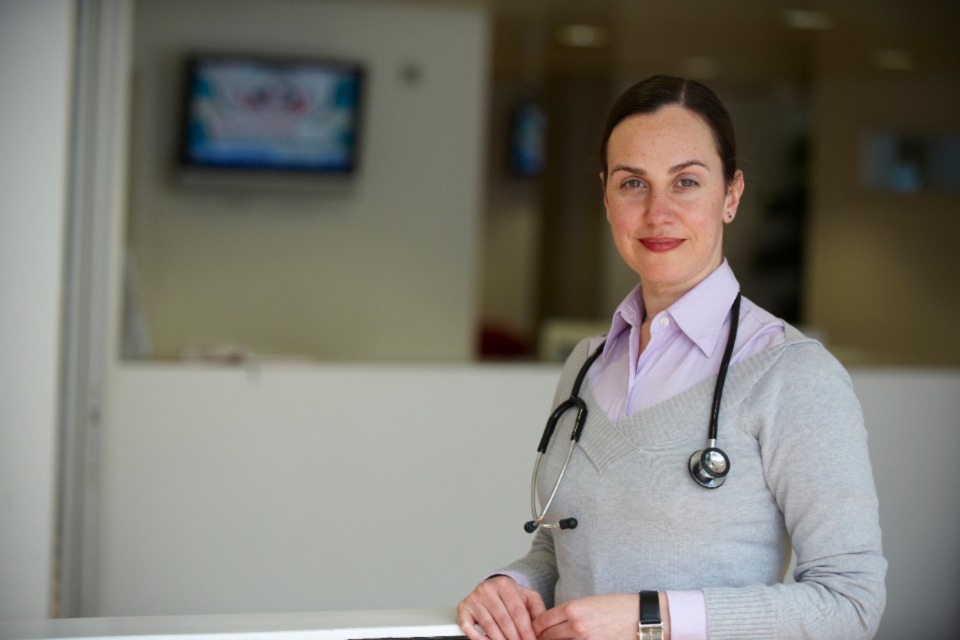26 November 2025
|3 minutes
Budget briefing: What medics need to know

An unprecedented budget
It was a budget that was undermined by an unprecedented leak that brought months of fevered speculation to an end. Here Alec Collie, Head of Medical at Wesleyan Financial Services, unpacks what these announcements mean for medics.
Spotlight on taxes
Income tax
The Chancellor froze Income Tax thresholds for a further three years until 2031.
This represents a stealth tax that's quietly reducing take-home pay and adds to the feeling that this tax system is stacked against medics trying their hardest for their patients.
Doctors earning more than £100,000 start to lose their tax-free personal allowance, effectively meaning they pay a marginal tax rate of 60% on earnings between £100,000 and £125,140.
This means they face the prospect of taking on extra hours and responsibility, but only being paid for a fraction of their additional work.
Not only that, they also become ineligible for tax-free childcare, which can be worth up to £2,000 a year for every child under 11-years-old.
For GP partners, the overall pressure is made worse by ever-rising practice costs, which will be further impacted by the confirmed rise in the minimum wage. Against this backdrop, GPs at the start of their career will be forgiven for wondering what incentive there is at all to pursue partnership.
This is pressure that risks deepening recruitment and retention challenges at a time when our health system needs stability most.
Property tax
From 2028, the Chancellor announced a so-called ‘Mansion Tax’ on properties worth more than £2 million.
This annual charge comes on top of Council Tax and includes four bands, rising from £2,500 for a home valued between £2 million and £2.5 million, up to £7,500 on properties worth £5 million or more.
Pensions, savings and investments
Thankfully, the Chancellor decided not to take away the option to take 25% of a pension pot as a tax-free lump sum, up to a maximum of £268,275.
This will come as a huge relief to many doctors who have spent months worrying about potential cuts.
It provides some stability after years of complex reforms and uncertainty following the McCloud judgement. It means that retirement plans, often years in the making, can now stay on track, allowing doctors to continue planning with greater confidence.
The Chancellor also chose to maintain the triple lock on the State Pension, which will continue to match CPI inflation, average earnings growth or 2.5%, whichever is highest.
But she did announce a cap on the amount savers can add to their pension pots through Salary Sacrifice schemes, which has now been limited to a maximum of £2,000 a year.
From April 2029, salary-sacrificed pension contributions above £2,000 will be treated as ordinary employee pension contributions, so subject to employer and employee National Insurance contributions.
Reducing pension tax relief is another blow for doctors who have already endured years of shifting rules on retirement policy, something that should ideally be long-term and stable.
This short-sighted move risks discouraging long-term saving and undermines a significant source of value, the NHS Pension Scheme. This could make retention, and recruitment, even harder at a time when the NHS needs experienced clinicians the most.
ISA reform
The Chancellor also moved to reform Individual Savings Accounts from April 2027, with the aim of encouraging more retail investors.
While the £20,000 annual investment limit remains, £8,000 of that must now be invested in a stocks and shares ISA, although over 65s are exempted from this rule.
We’re fully supportive of anything that helps more medics invest, but it’s important that anyone now looking to change how they save their money fully understands their options before putting money in the markets.
There’s no ‘one-size-fits-all’ approach to investing – the ‘right’ approach reflects your personal goals, and tolerance to things like volatility and risk.
Options like ‘smoothed funds’, for example can be held in a Stocks & Shares ISA, which ‘smooths’ out peaks and troughs in the investing journey. This might be highly appealing to new investors nervous about day-to-day volatility.
Increased tax rates
Another important consideration for some medics will be the Chancellor’s decision to increase tax rates on dividends, property and savings income - all by 2%. Dividend tax will rise by 2% from April next year, and savings and property taxes from April 2027.
A 2% rise on dividend tax is not surprising but still puts more pressure on the additional work done by doctors. It increases the incentive to leave money in the limited company to avoid the tax, but then increases the chance of paying Capital Gains Tax at the back end.
It means that doctors operating limited companies should really consider how best to structure them, as well as how to time and structure any withdrawals from the company to ensure the biggest benefit for their families.
Options like utilising employer pension contributions and investing within the company are effective ways to maximise your cash at exit, but they should be done so with advice from a specialist financial adviser, as the annual allowance can create complications.
Cost of living impact
Motorists were singled out in the Chancellor’s revenue raising measures.
After 16 years of being frozen, Fuel duty will be defrosted in September 2026, at which point phased increases will be imposed until April 2027, and after that the rate will grow annually in line with inflation.
And owners of electric vehicles will be hit with a new Road Charge of 3p per mile, while plug-in hybrid drivers will pay 1.5p per mile, which the government says represents around half the Fuel Duty paid by petrol car owners.
This comes in from April 2028 and will rise every year with inflation.
